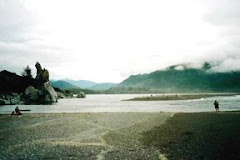The Klamath Falls Herald and News got the headline just right: House passes Walden’s plan to help protect Klamath Project water users (emphasis added). The article goes on to report that "the proposal would confer applicant status on those irrigators, ensuring that
they are included in Endangered Species Act consultations that could
affect operations of the water project they rely upon." Republican Congressman Greg Walden was able to add the provision to the "Western Water and American Food Security Act" which passed the
House with "bipartisan support". The legislation now goes to the U.S. Senate.
Walden's effort to "protect" federal irrigators from the Endangered Species Act implements one of the main objectives of the KBRA Water Deal: to provide "relief" to Klamath Project Irrigators from requirements of the federal Endangered Species Act. That relief will also come in the form of wink-and-nod approval of Habitat Conservation Plans that KlamBlog predicts will remove ESA constraints on irrigation within the sprawling federal irrigation project. KlamBlog has previously written in depth about what we call the KBRA's "wink-and-nod" approach to implementing the ESA. The newer Upper Basin Comprehensive Agreement extends the same ESA "relief" to irrigation interests above Upper Klamath Lake.
In the news report Walden states that the provision he championed formalizes what is already the practice: the US Bureau of Reclamation routinely involved organizations representing irrigators in consultations with the US Fish & Wildlife and National Matrine Fisheries Services. Those consultations focus on impacts the 200,000 acre irrigation project has on Kuptu, Tsuam and Achvuun (Shortnose and Lost River Suckers and Coho salmon).
Walden's move may be in response to an investigation being conducted by the Department of Interior. A former employee has alleged that Reclamation misspent funds which were appropriated to benefit fish and wildlife in order to pay for private growers to pump groundwater for irrigation. Involving a private entity in agency-to-agency government consultations may violate rules designed to protect such consultations from private interest influence. That may be why Walden is pushing the provision now, that is, to legalize what is otherwise an illegal practice. Whether it is legal or not, commercial interests should not be part of ESA consultations which by law are supposed to be based on the best available science and the scientific opinions of expert agencies.
Of course Reclamation does not include all those to whom it supplies water in those ESA consultations. Instead, the Klamath Water Users Association (KWUA), which is controlled by a handful of large and powerful growers, is given a seat at the table while smaller irrigators are left outside.
And what about the tribes, fishermen and others who have a vital interest in how Klamath River water is managed? Why doesn't Mr. Walden want to give them a seat at the ESA consultation table too? With so many of us dependent on Klamath River water, why is just one interest singled out for special treatment with respect to those ESA consultations?
Undue influence and taxpayer support:
Walden's effort to "protect" federal irrigators from the Endangered Species Act implements one of the main objectives of the KBRA Water Deal: to provide "relief" to Klamath Project Irrigators from requirements of the federal Endangered Species Act. That relief will also come in the form of wink-and-nod approval of Habitat Conservation Plans that KlamBlog predicts will remove ESA constraints on irrigation within the sprawling federal irrigation project. KlamBlog has previously written in depth about what we call the KBRA's "wink-and-nod" approach to implementing the ESA. The newer Upper Basin Comprehensive Agreement extends the same ESA "relief" to irrigation interests above Upper Klamath Lake.
In the news report Walden states that the provision he championed formalizes what is already the practice: the US Bureau of Reclamation routinely involved organizations representing irrigators in consultations with the US Fish & Wildlife and National Matrine Fisheries Services. Those consultations focus on impacts the 200,000 acre irrigation project has on Kuptu, Tsuam and Achvuun (Shortnose and Lost River Suckers and Coho salmon).
Walden's move may be in response to an investigation being conducted by the Department of Interior. A former employee has alleged that Reclamation misspent funds which were appropriated to benefit fish and wildlife in order to pay for private growers to pump groundwater for irrigation. Involving a private entity in agency-to-agency government consultations may violate rules designed to protect such consultations from private interest influence. That may be why Walden is pushing the provision now, that is, to legalize what is otherwise an illegal practice. Whether it is legal or not, commercial interests should not be part of ESA consultations which by law are supposed to be based on the best available science and the scientific opinions of expert agencies.
Of course Reclamation does not include all those to whom it supplies water in those ESA consultations. Instead, the Klamath Water Users Association (KWUA), which is controlled by a handful of large and powerful growers, is given a seat at the table while smaller irrigators are left outside.
Growers who dominate Klamath irrigation politics live in mansions like this one
near Tule Lake. When they don't get their way they advertise their dissatisfaction.
And what about the tribes, fishermen and others who have a vital interest in how Klamath River water is managed? Why doesn't Mr. Walden want to give them a seat at the ESA consultation table too? With so many of us dependent on Klamath River water, why is just one interest singled out for special treatment with respect to those ESA consultations?
Undue influence and taxpayer support:


